2023 Annie M. Alexander Award — Kathryn Bischoff
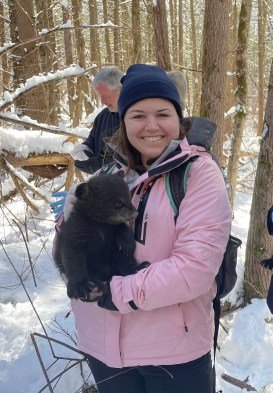
Kathryn Bischoff is a PhD student at the University of Connecticut in the Natural Resources and Environment Department. She received her B.S. in Biology from Colby-Sawyer College, where she studied the prevalence of pathogens and pests in honeybees. She was awarded a USDA National Needs Fellowship and completed her M.S. in Natural Resources at the University of Connecticut. Her thesis focused on how an introduced competitor and habitat characteristics influence population dynamics of the imperiled New England cottontail. Her research involves using spatial and statistical analyses, including occupancy and abundance models, to compare species-habitat relationships. The overall goal of her research was to better understand how to manage for New England cottontail in a landscape prevalent with the introduced eastern cottontail. She recently started a PhD at the University of Connecticut, where she will create species distribution models for several species of conservation concern in Connecticut. Her work will combine ecological data with social data to map priority areas for conservation for the Connecticut Wildlife Action Plan. She is excited to work in applied conservation research, and plans to pursue a career in endangered species policy at the federal level and then work as a professor. Her favorite wildlife experience during her graduate studies has been holding month-old black bear cubs while state agency employees attached a radio collar to the sow.
2023 Anna M. Jackson Award — Rachel Stein
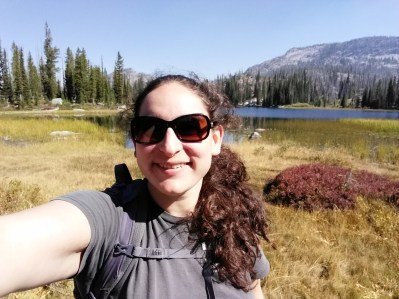
Rachel Stein grew up in Omaha, Nebraska, and graduated from the University of Nebraska at Omaha with a B.S. in Biology. She studied Natural Resources as an M.S. student at the University of Idaho’s McCall Outdoor Science School where she developed curriculum focused on connecting students to science and place through acoustic ecology. In May 2023, Rachel graduated with her Ph.D. in Natural Resources from the University of Idaho. Her dissertation research focused on how properties of habitat influence access to sensory information, particularly visual information, and how individuals select habitat in response. Rachel worked extensively on methods of measuring viewsheds (i.e., visibility) using terrestrial lidar. Currently, she is working as a short-term postdoctoral researcher scaling up the method to assess viewsheds at a landscape-scale with drone and airborne lidar data. Rachel has a strong interest in education and outreach that she continued to pursue during her doctoral studies, as both a teaching assistant and instructor of record for numerous wildlife and ecology courses at the University of Idaho. She also mentored multiple undergraduate researchers. In addition to the Anna M. Jackson Award, Rachel received a Grant-in-Aid from ASM in 2020. Her research has also been funded by the NASA Idaho Space Grant Consortium, Phi Kappa Phi, the Idaho Chapter of the Wildlife Society, and grants from the University of Idaho.
2023 A. Brazier Howell Award — Sean Johnson-Bice
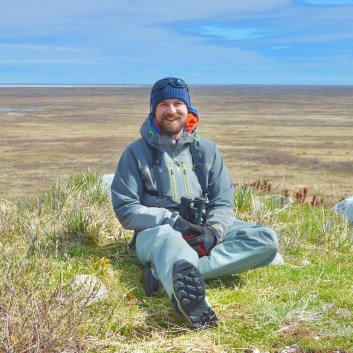
Sean Johnson-Bice is currently a PhD candidate at the University of Manitoba under the supervision of Dr. Jim Roth. His current research focuses on two major aspects: understanding how predators help contribute to landscape heterogeneity and ecosystem function via a variety of mechanisms, and evaluating the population dynamics and trophic interactions of Arctic tundra predators – namely, Arctic and red foxes – and their prey. This work is part of the long-term research project, the Churchill Fox Project, led by Jim Roth that is generally focused on studying food web dynamics, and how these dynamics are affected by climate change, at the tundra-taiga interface along the western coastline of Hudson Bay near Churchill, Manitoba, Canada. Sean has broad research interests, including understanding how human activity affects mammalian behavior and predator-prey dynamics, studying the ecosystem engineering roles of mammals and how they affect other species, and evaluating drivers of animal population dynamics and trends in a changing climate. He is also interested in using modern analytical techniques and remote sensing data/technology towards answering both fundamental and applied ecological questions within these research areas. Sean fostered a passion for the outdoors, wild places, and wildlife through childhood camping trips and by working seasonal technician jobs in places like Hawaii, the mountains near Santa Fe, New Mexico, the Florida Keys, and the Northwoods of Minnesota, where he worked for several years as part of the long-term Voyageurs Wolf Project (and still collaborates with today). Sean received his B.Sc. from the University of Wisconsin-Madison, and his M.Sc. from the University of Minnesota Twin Cities.
2023 Elmer C. Birney Award — Miranda Theriot
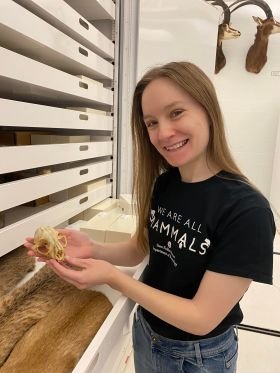
Miranda is currently a PhD candidate in biology at the University of Oklahoma working with Dr. Hayley Lanier (also a Birney award recipient in 2008). For her research, Miranda uses museum specimens to assess mammalian responses to recent global change, with an emphasis on body-size shifts. Her dissertation focuses on drivers of morphological trends across space and time in mammals, including underlying shifts in population age structure, nutrient stress, and urbanization. The pursuit of these topics has led her work on a variety of species, including masked shrews, American martens, Canada lynx, eastern fox squirrels, and raccoons. Miranda has had the honor to conduct her research at two museums: The University of Alaska Museum and the Sam Noble Oklahoma Museum of Natural History. Building on a lifelong love of museums, Miranda aims to pursue a career that integrates specimen-based research, collections stewardship, and public outreach.
2023 Undergraduate Student Honoraria:
Esteban Restrepo-Cortés and Katherine Garrett
The American Society of Mammalogists supports and encourages undergraduate students to participate in research and engage in the annual meeting. The Undergraduate Student Honoraria program was established in 2000 to recognize the outstanding research accomplishments and potential for future success of its undergraduate members.
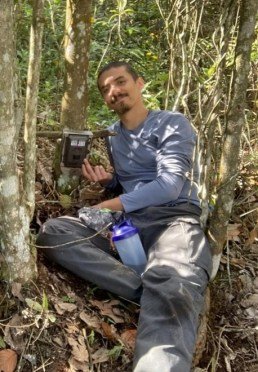
Since Esteban Restrepo-Cortés’ first year at Universidad CES in Colombia, he has been fascinated by mammals. His passion has led him to explore ecosystems in the neotropics from the Andean Páramos grasslands to the Colombian xerophytic forest, learn different field methods to study mammals, and help to teach mammalogy content in some undergraduate classes. For his honors’ thesis at Universidad CES, he researched the dietary ecology of the mountain lion (Puma concolor) in the northern Andes using scat analyses. Esteban is also invested in collections-based research and has involved himself with mammalian specimen preparation at both the Colecciones Biológicas de la Universidad CES and the Museum of Southwestern Biology at the University of New Mexico. At the University of New Mexico, he became interested in the research topics in Dr. Felisa Smith’s lab. There, under the mentorship of PhD candidate Jonathan Keller, Esteban is working on a project to identify harvest mouse (Reithrodontomys) species from 3D tooth shape and collecting ecomorphology data to characterize changes in ecology from the Pleistocene to the present. Studying these 3D dental data under the supervision of Jonathan and Dr. Felisa Smith, he is currently examining dental traits of the extant rodent Reithrodontomys to differentiate between three species present in the area surrounding the Hall’s Cave fossil site in Texas. Using these traits, he is identifying the fossils to determine whether climate change and biodiversity caused species turnover within Reithrodontomys over time or if individual species adapted. In his graduate research, he hopes to investigate the trophic dynamics between extinct and extant felids in the Americas to reconstruct how the ecology of American felids has changed over time.
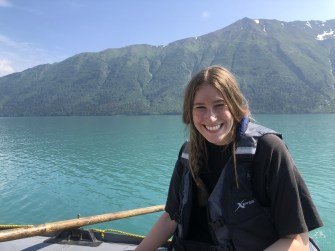
Katherine Garrett is finishing up her bachelor’s degree in Zoology from the University of Wyoming in Laramie, WY and is anticipating graduating in Fall of 2023. She is interested in population ecology, conservation, animal behavior, disease management, and evolutionary biology. Growing up in the Black Hills National Forest allowed for her to foster an interest and deep appreciation for wildlife, specifically mammals, from a young age. Throughout high school and the start of college, her interest in research grew and led her to pursue undergrad research in multiple labs around campus including her current lab and research assistant positions. She is now a part of the Wyoming Research Scholars Program which has allowed her to join Dr. Jacob Goheen’s lab, studying the life history traits of Kenyan small mammals. In the future she hopes to pursue a career in academia and is currently applying for a wildlife internship in the Spring of 2024 and master’s program in ecology in the Fall of 2024.
